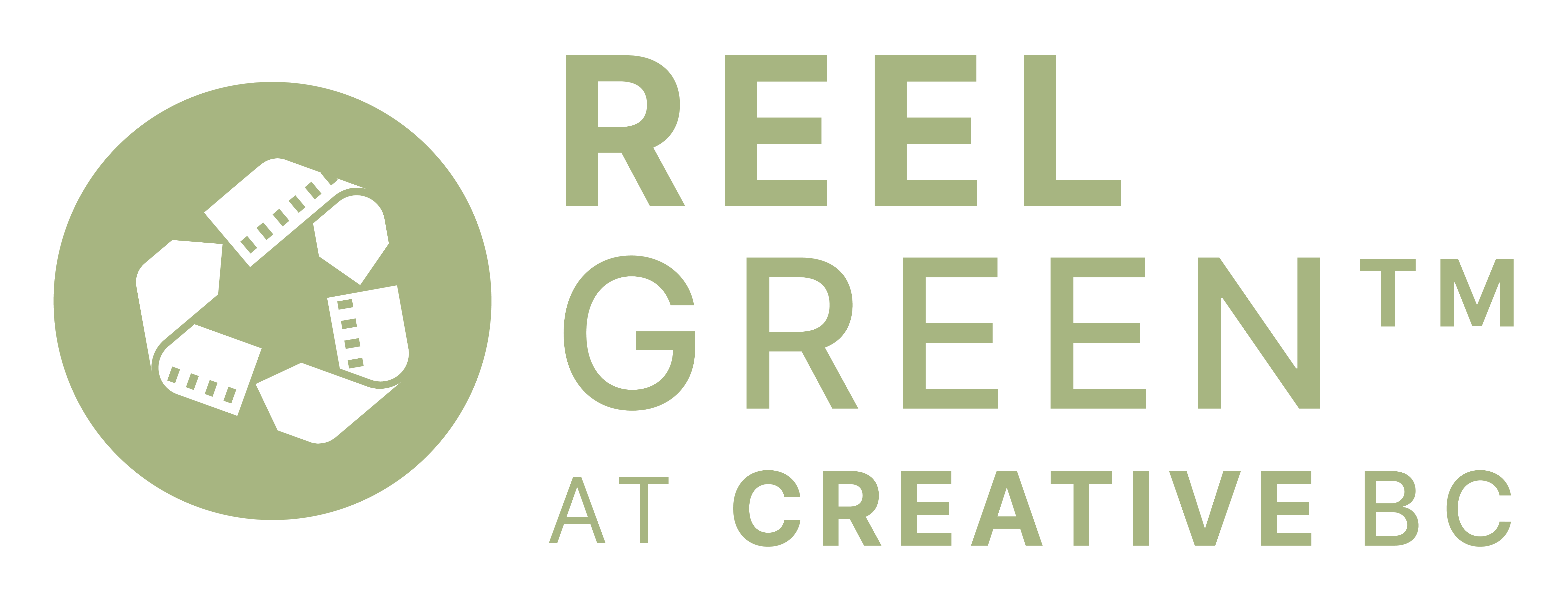The fourth annual REEL Earth Day Challenge has raised $100,000 toward projects delivered through Metro Vancouver Regional Parks Foundation. Since 2021, the annual BC film industry fundraiser for parks and greenspaces has raised over $473,000. “Creative BC's Reel...
Related News
Reel Green™ Vendor Spotlight: Driving Force
Driving Force, a Reel Green™ Advisory Partner and eco-friendly vendor is driving sustainability within the film industry! Across Canada, Driving Force is known for solving problems, keeping promises, and helping communities. Their sustainable role in the Vancouver...
REEL Earth Day Challenge – Fall 2023 Report
The 2023 #REELEarthDayChallenge brought together film crews, productions, sponsors and industry stakeholders to raise funds towards projects for Metro Vancouver Regional Parks. This year the BC film industry raised $100,000 towards 9 projects. These projects are led...
Reel Green™ Circular Economy Toolkit is Now Live!
A circular economy is one that minimizes waste and makes the most of available resources. In contrast to the traditional linear economy, which follows a "take, make, dispose" model, a circular economy aims to keep products, materials, and resources in use for as long...
Okay, What’s Up with Compostable Plastics?
Have you ever wondered what’s up with those compostable plastics? Can they actually go in the compost? They’re still a single-use item, right? Read on to discover more
Green Spark Group worked with student researcher Samantha Leigh at Quest University Canada to dive into compostable plastics. Leigh developed a research paper that clears up general points of confusion about compostable plastic, certification standards, and composting processes.
In addition, the paper gives an overview of composting-related progress in the Metro Vancouver area, summarizes local facilities and what items they accept, and provides potential directions for future development to reduce single-use items and divert more organic waste from landfill. Key points from the paper include:
Compostable plastics are confusing because:
-
They look like petroleum plastics, causing consumers to dispose them incorrectly into recycling or landfill-destined streams.
-
There are many Green-Labelled products that are not truly compostable, which cause problems when they end up at a composting facility and add to general confusion.
-
They are not accepted in residential (home) compost streams, but are sometimes accepted in commercial streams, causing confusion at disposal.
To be accepted by composting facilities, compostable plastic products must:
-
Be certified by ISO, ASTM, BPI, or another internationally-recognized third-party testing body for material compostability.
-
Be verified as compostable by the facility and explicitly approved in the contract between the businesses and the composting facility.
-
Not be accompanied by contaminants such as non-food waste or petroleum plastics.
If the facility does not accept compostable plastics:
-
Use fibre products such as wood, bagasse, and bamboo because they are accepted by and degrade in industrial composting facilities.
-
Do NOT purchase or supply compostable plastics to your customers. If they cannot be composted, these products must go to landfill because they are not currently recycled.
-
Work with the facility and local government to improve regulations that allow facilities to accept certain types of compostable plastics.
Compostable Plastics Use Guideline
To read the full paper click here.
Stay Connected
Subscribe to our newsletter

